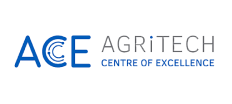BEng (Hons) in Mechanical and
Manufacturing Engineering
The REEdI (Rethinking Engineering Education in Ireland) BEng (Honours) in Mechanical and Manufacturing Engineering brings in the best of manufacturing and mechanical engineering, creating flexible and adaptable engineers to meet industry needs.
Course Code
MT 834
Qualification
BEng (Hons)/MEng (Hons)
Honours Bachelor Degree
Level 8 NFQ
Duration
4 Years
Entry Requirements
For admission to a programme, standard applicants must
- score the necessary CAO points and
- meet the minimum entry requirements
Leaving Certificate in six subjects i.e. H5 in two subjects and O6/H7 in four other subjects. The six subjects must include Mathematics and either English or Irish grade O6/H7.
NOTE: Applications will be assessed based on a combination of Leaving Certificate points and points awarded a portfolio. The portfolio is an opportunity for students to demonstrate their suitability for engaging in a dynamic, creative and engaging REEdI Engineering Programme.
What is Mechanical and Manufacturing Engineering?
The REEdI (Rethinking Engineering Education in Ireland) BEng (Honours) in Mechanical and Manufacturing Engineering is a blended degree that brings in the best of manufacturing and mechanical engineering, culminating in flexible and adaptable engineers to meet industry needs. The REEdI student engineer will learn about the design and development of processes whilst also gaining an equally strong knowledge of the design, development and operation of products and equipment.
Students will learn “just-in-time” not “just-in-case”. The course will be delivered using cutting edge technologies such as augmented and virtual reality. In addition, students get to learn from top lecturers in the field, study and work with emerging technologies, work with world-class companies, learning using a blended approach, through classroom-based, as well as hands-on experience. The goal of the REEdI programme is to turn curious, creative, innovative and adaptable people into the engineers of the future.
Career Options:
Graduates will be in prime position to take up engineering roles across the following sectors:
- Automotive
- General manufacturing
- Agritech
- Climatech
- Foodtech
- Medtech
- Pharma and manufacturing
The roles are varied and can include:
- Mechanical engineers
- Product engineers
- Design engineer
- R&d engineer
- Polymer engineer
- Process engineer
- Production support engineer
- Facilities engineer
- Plant engineer
- Maintenance engineer
- Calibration engineer
- Project engineer
- Sales engineer
- Validation engineer
- Biomedical engineer
- Quality engineer
- Manufacturing engineer
A day in the life of an Engineer
What Will I Study?
First year at a glance
- Engineering Technology: introduces the fundamentals of engineering tools and equipment
- Design Engineering: design methodology and basic draughting skills
- Mechanical Engineering: basic principles and the analysis of static and dynamic systems in engineering
- Mathematical Methods for Engineers: basic principles of mathematics and their application in solving engineering problems
- Electrical and Electronic Engineering 1: Basics of electronic circuits, electronic components, AC/DC circuit analysis, digital circuits
- Automation Engineering: basic principles of instrumentation and control and their applications in engineering
- Fundamentals of Engineering Science: basic principles of physics, a range of materials, their properties, processing techniques
- Engineering Challenge 1: Reinventing The Wheel – group project challenge which provides an opportunity for research and encourages creativity
- Engineering Challenge 2: group project simulating the introduction and automation of a manufacturing line (Semester 2)
- Quality Engineering: quality management, quality control, basic and advanced QA, risk management
- Production Engineering: product and process lifecycle, production cell design, work measurement, production performance, production control
Graduates of this programme will be able to:
- Demonstrate technical, soft skill and transversal skill competencies work effectively and professionally as an individual or within multidisciplinary teams
- Apply acquired skills and knowledge required to solve problems and collaborate with subject matter experts (SMEs)
- Research and develop potential solutions to problems
- Interpret engineering drawings, SI units, specifications, engineering standards, regulatory requirements
- Demonstrate implementation of principles and application of the concepts involved in operational excellence and lean 6-sigma
- Demonstrate an in-depth knowledge of digital / immersive technology and identify opportunities to utilise these effectively in industry
- Recognise good leadership attributes and look for continuous professional development (CPD) opportunities to develop these
- Demonstrate awareness of the UN Sustainable Development Goals (SDGs) and the importance of the engineer’s role in society
Formal work placement (2 years) is an integral element of the course and takes place in years three and four. MTU will secure work placement for students, working with industry partners to ensure specific projects are ready for students to prepare for prior to going on placement which they will then work on whilst on placement.
Modules
What is a Module?
A module is a standalone unit of learning and assessment and is completed within one semester. A full-time student will normally study six modules in each semester; part-time and ACCS (Accumulation of Credits and Certification of Subjects) students will have flexibility as to the number of modules taken.
The button below provides a link to all of the University’s approved modules for this programme.










